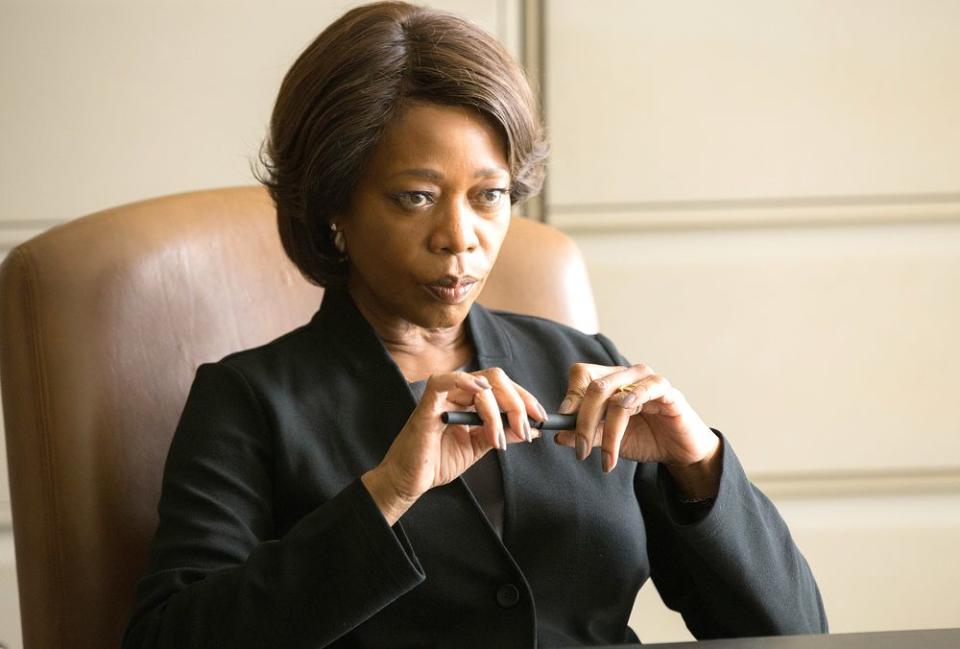Alfre Woodard remains a mystery in the prize-winning but opaque death-row drama Clemency: Review

What does it cost your soul to participate in the taking of a human life? That’s the question asked and at least provisionally answered in writer-director Chinonye Chukwu’s Clemency, a provocative, if sometimes ponderously executed, portrait of a prison warden named Bernadine Williams (Alfre Woodard) on the eve of her 13th execution.
As the movie opens, Bernadine is overseeing her 12th — a death-by-injection that goes terribly wrong in the room, though her face hardly betrays it. Strong feeling is something she takes pains not to surface in any circumstance, even as it seeps through in the nightmares that startle her awake in the middle of the night, gasping, and the tumblers of Johnnie Walker Black she seems to be turning toward more and more regularly.

“I do a good job. I do a goddamn good job,” she tells her deputy warden one night, tipsily. And technically, that’s true; at work and at home, she’s calm, methodical, and self-possessed, seemingly unperturbed by the husband aching to reconnect (a fine, understated Wendell Pierce) or the inmate who’s due next on her list (Underground’s Aldis Hodge).
As Anthony Woods, a young man scheduled to die for a murder he may not have committed, Hodge is the beating heart of the movie, by turns hopeful and comatose, furious and tender. In scenes that take place largely across from his rumpled, hollow-eyed lawyer (West Wing Emmy winner Richard Schiff) and in one harrowing exchange with his long-estranged lover (Orange is the New Black’s Danielle Brooks), he conveys with raw desolation what it feels like to be facing death when you’ve hardly begun to live.
It makes sense that his world would be filled with long empty silences, and to some extent Bernardine’s too. Chukwu, who became the first black woman to win the Grand Jury Prize at Sundance earlier this year, has a gift for stretching out the moments between words and action and allowing them to sit there without abbreviating or explaining them away for her audience’s comfort.
Sometimes, though that stillness — and all the things left unshown and unsaid — can suffocate the impact of her storytelling. Woodard excels at portraying a woman who has strayed so far from her own humanity that she may never find a way back, but, as a character, Bernardine can also feel crucially underdrawn, with no real indication of how she landed in this profession or what compels her to stay.
Clemency does what few other movies about death row have, handling a thorny, infinitely complicated subject in terms that are neither moralizing nor melodramatic. And Chukwu’s clean-lined storytelling has an undeniable pull; something quietly incandescent at the center. In the end though, it’s hard not to wish that she’d let a little more light in. B
Related content:

